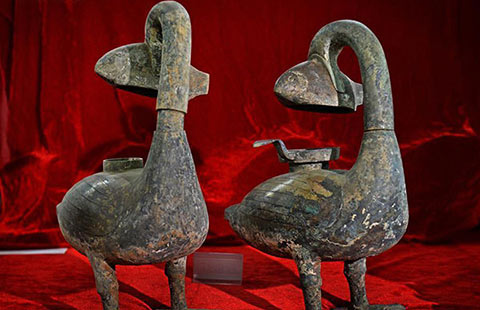 |
|
[Photo provided to China Daily]
|
The Regulation on Geographical Names, published by the State Council and enacted in 1986, and subsequent bylaws issued in 1996 stipulate that residential compounds, individual buildings and apartment units are subject to the rules outlined in the guidelines.
A clause in the bylaws states that "names of foreign persons and foreign geographical features are not allowed to be used for geographical names in China".
According to Liu, some long-standing place names have disappeared completely because the ancient buildings after which they were named have either been knocked down or were damaged beyond repair. Many were also changed after the original buildings were replaced by new ones and the locations were renamed after the new constructions.
He added that the unusual names given to places and buildings reflect an appreciation of foreign culture and an admiration of foreign lifestyles, which indicates a lack of confidence in traditional Chinese culture. The pursuit of commercial benefits via the use of exotic names has also resulted in people associating some public places with foreign cultures.
That view was echoed by Wu Yutian, a 35-year-old Zhengzhou resident: "In China, a country with more than 5,000 years of civilization, a name of a geographical feature usually carries a significant historical meaning. For example, Erqi Tower, in the center of Erqi square in the downtown, was built to honor 27 workers who died in a general strike in 1923. Now, the tower is dwarfed by skyscrapers, but I don't think the names of the tower and the square should be changed to fit the surrounding new buildings because the story behind the name would probably be unknown to future generations."
One resident, who preferred not to be named, said: "Zhengzhou is a major birthplace of ancient Chinese culture, and many tourists from home and abroad come here to look at relics dating back for millennia. The value of these relics can be compared with the Terracotta Warriors in Xi'an. Local governments have an obligation to protect existing names of geographical features, and protect the city's history and culture."
























 Raymond Zhou:
Raymond Zhou: Pauline D Loh:
Pauline D Loh: Hot Pot
Hot Pot Eco China
Eco China China Dream
China Dream China Face
China Face






